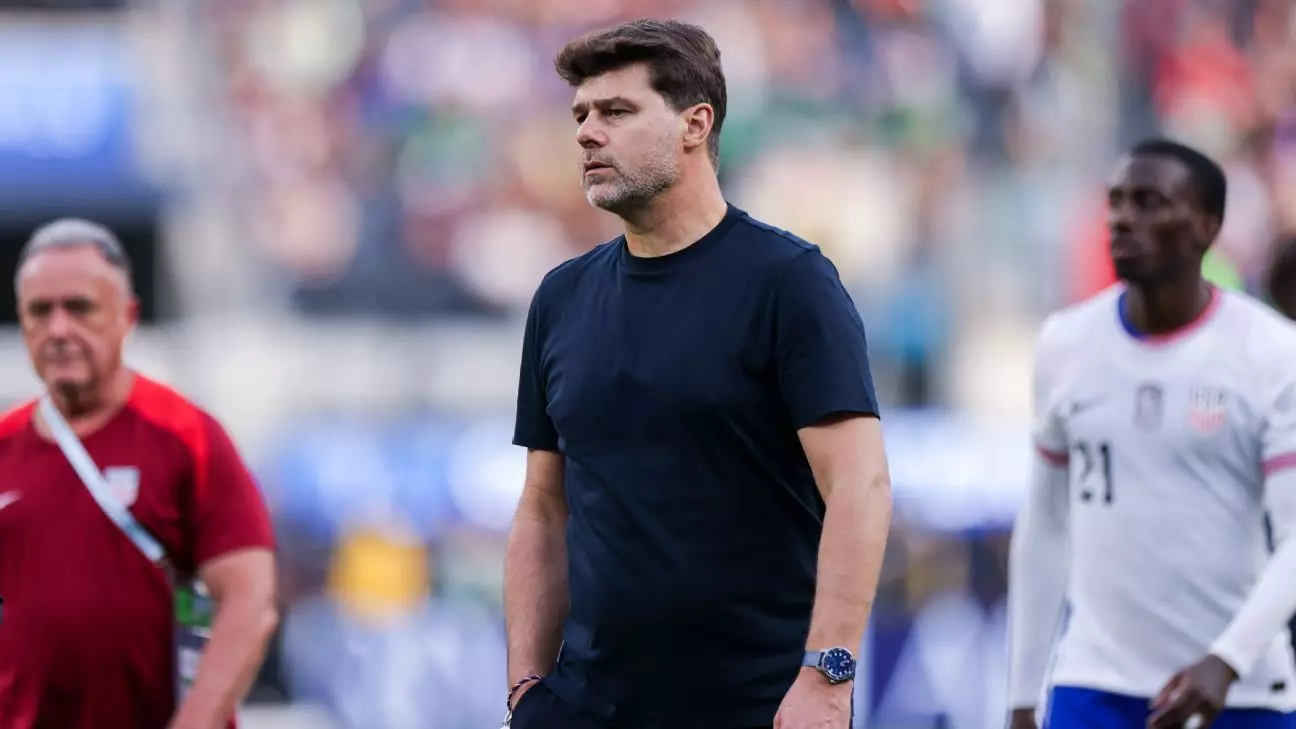The landscape of national soccer teams often reflects the identity and psyche of their countries. In discussions surrounding the United States men’s national team (USMNT), the selection of a foreign coach has sparked significant debate, especially through the lens of former coach Bruce Arena’s critique of current head coach Mauricio Pochettino. Arena’s argument boils down to a vital point: the essence of coaching is deeply intertwined with understanding the intricate cultural nuances that define a nation’s athletes and their fans. He insists that without this inherent connection, the mission to elevate the USMNT may be fraught with peril.
Pochettino, the Argentine tactician appointed to lead the USMNT last August, symbolizes a shift in approach that Arena finds troubling. He points out that the majority of national teams worldwide appoint domestic coaches who are not only familiar with the game but also with the cultural fabric of the country they represent. National pride, communal expectations, and a sense of belonging play pivotal roles in the success of any sports team. For the United States, which is home to a diverse range of soccer styles and influences, having a coach who grasps these dynamics is not just beneficial; it’s essential.
Lessons from History
The United States’ soccer history bears light on Arena’s perspective. The USMNT has seen success under coaches who understood American soccer culture. Jurgen Klinsmann and Bora Milutinović contributed significantly during their tenures, yet even they faced mixed outcomes. Their foreign perspectives offered new strategies and training methods, but such insights sometimes clashed with the American ethos of grit and determination that often characterizes the nation’s athletes.
In contrast, Arena, who previously led the team to the quarterfinals of the 2002 World Cup, advocates for a return to homegrown leadership, rooted in a profound understanding of the American spirit. He suggests that being entrenched in the American soccer scene allows coaches to inspire players, bolster their mental fortitude, and foster a deeper sense of commitment and pride—qualities that are paramount going into the 2026 World Cup.
Concerns Over Development and Performance
The recent performance of the USMNT raises valid concerns. Under Pochettino’s management, the team’s lackluster showing in the Concacaf Nations League Finals—where they faltered against both Panama and Canada—has brought intense scrutiny. Critics have begun to question whether the talent on the roster can be effectively harnessed without a pivotal understanding of American sports culture. Pochettino’s own reflections on the team’s mentality underscore a pressing issue: mere talent does not guarantee success; mental resilience and the ability to perform under pressure are equally crucial.
Arena’s frustration is palpable as he points to the shocking defeats, emphasizing that a team lacking pride and a solid understanding of its heritage will struggle against seasoned adversaries. As the countdown to the 2026 World Cup begins, the urgency to reshape the team’s identity, fortified by a local leadership vision, becomes increasingly pressing.
A Vision for the Future
Looking ahead, there’s an undeniable necessity for a shift in tactics and strategy. Arena doesn’t merely lament the current state of affairs; he emphasizes that it’s a pivotal moment for American soccer. The prospect of competing for soccer’s highest honor is on the horizon, but it nearly demands a leader who can rally American players—infusing them with much-needed confidence and connectivity to their roots.
As the USMNT prepares to take its place on the world stage, it must capitalize on this unique opportunity to shape its identity. Nurturing local talent and building a resilient team culture must be at the forefront of this mission. However, the conversation must extend beyond just the coaching staff to encompass the entire soccer ecosystem within the United States. By fostering an environment where local wisdom and cultural understanding take precedence, the USMNT could not only enhance its chances in the upcoming World Cup but also secure its place as a formidable contender on the global soccer scene.
Ultimately, the future of American soccer is contingent on empowerment and belonging—concepts that can only flourish under the auspices of those who truly understand them.

